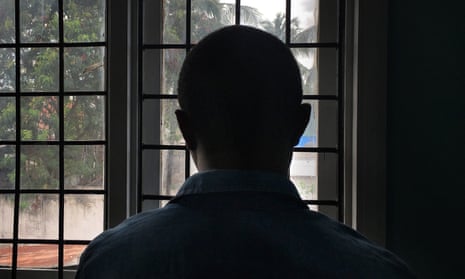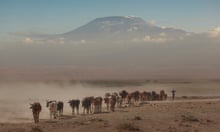Hundreds of LGBT activists in Tanzania have gone into hiding after a senior official announced a taskforce aiming to identify and punish gay people in Dar es Salaam.
Paul Makonda, the city’s administrative head, said he had put together a team of officials and police that would target gay people, who could face lengthy prison sentences, in an intensification of anti-LGBT discrimination.
In an interview posted on YouTube, Makonda called for Tanzanians to report gay people and told a news conference he had already received more than 5,700 messages from the public, including more than 100 names.
One LGBT activist, speaking to the Guardian from Dar es Salaam on condition of anonymity, said: “They are raiding houses. It is a horrible thing. It is just going to get worse. So many people are leaving the city, running away. They are targeting the activists, saying we are promoting homosexuality. We have to hide.”
Another activist in the city described the atmosphere as “open season on gay people” and reported lists of names being published on social media to “out people”.
“You can imagine what that is doing to people, to families,” he said.
The Tanzanian foreign ministry has said Makonda’s campaign represents his own views and not the official government position.
But officials have repeatedly backed a series of homophobic measures since John Magufuli became president in 2015 on an anti-graft platform.
Campaign groups have accused Tanzania of following a “dangerous path”. The country also faces growing criticism over alleged human rights abuses.
Joan Nyanyuki, Amnesty International’s regional director for east Africa, the Horn and the Great Lakes, said: “The idea of this taskforce … serves to incite hatred among members of the public. LGBTI people in Tanzania already face discrimination, threats and attacks without hateful statements of this kind.”
Michelle Bachelet, the UN high commissioner for human rights, said she feared “a witch-hunt [which] could be interpreted as a licence to carry out violence, intimidation, bullying, harassment and discrimination against those perceived to be LGBT”.
In 2016, Tanzania banned nongovernmental organisations from distributing free lube to gay people as part of efforts to control the spread of HIV/Aids, even though some health experts warned shutting down such outreach programmes could put the wider population at higher risk of infection.
In a raid last year, at least 12 men were arrested at a Dar es Salaam hotel at a gathering that authorities said was to promote same-sex relationships.
Homosexuality remains taboo across much of Africa and gay people face discrimination or persecution, with human rights groups often reluctant to speak publicly in defence of gay rights.
A conviction for having “carnal knowledge of any person against the order of nature” can lead to 30 years or more in jail in Tanzania.
Two opposition leaders were sentenced to five months in prison in February for insulting Magufuli, and a Tanzanian opposition leader was charged on Friday with sedition and inciting hatred, days after he said scores died in clashes between security forces and herders in his western home district, a statement that was dismissed by authorities.
Zitto Kabwe, a frequent government critic, told a news conference on Sunday that at least 100 people died during clashes in Kigoma in mid-October.
He was detained three days later, then charged in court on Friday and released on a 10 million shilling (£3,400) bond, his Alliance for Change and Transparency party said.
Kigoma’s police commander, Martin Ottieno, told Reuters that two herders and two officers had died during an operation to stop the former keeping livestock illegally on a government-owned ranch.










